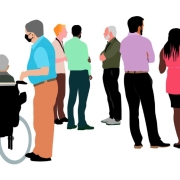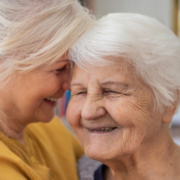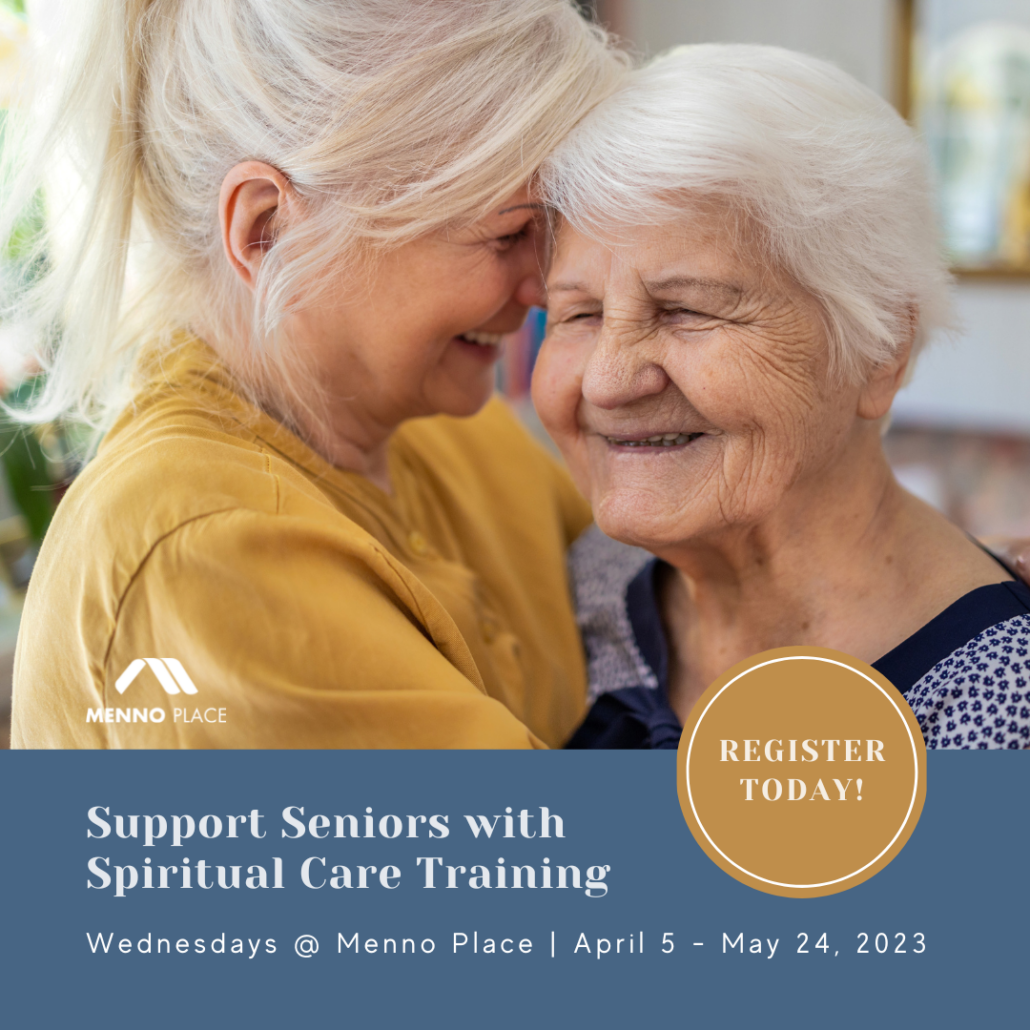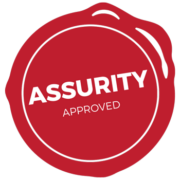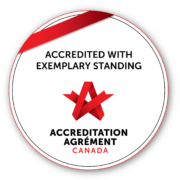On March 16, 2022, 2:30pm-3:30pm, Family and Friends (Family Council) will be meeting in person. The option of attending via Microsoft TEAMS will be offered as well. The meeting will take place in the Menno Hospital Conference Room (near the Fireside Café – behind the Receptionist’s desk).
Family and Friends is a regularly scheduled meeting for family members, friends or representatives of residents in Menno Home and Menno Hospital. Our guest speakers will be Coordinator of Accreditation, Projects and Education Loveleen Sekhon and Recreation Support/Special Projects Bryan Gay. Loveleen and Bryan will be discussing their roles and how they support our staff, residents and families at Menno Home and Menno Hospital.
Family Council is a great way to connect and learn about the opportunities that are on the Menno Place campus, as well as getting to know other family members that are on a similar journey with their loved ones in long term care. We hope you will be able to join us.
If you plan to attend in person:
• You will need to be Covid vaccinated
• Please arrive early in order to conduct the rapid test in the reception lobby
• Please wear masks during the meeting
If you plan to attend online through Microsoft TEAMS, please click the following link below to join the meeting by video, or call the number with the code beside it to call in to the meeting. It is recommended to download Microsoft TEAMS onto your device to benefit from all its features, but it not, you can still click the link and use TEAMS through your internet browser.
Join on your computer, mobile app or room device
Click here to join the meeting
Meeting ID: 288 646 295 170
Passcode: ySWzQp
Or call in (audio only)
+1 778-731-1352,,857217269# Canada, Port Moody
Phone Conference ID: 857 217 269#

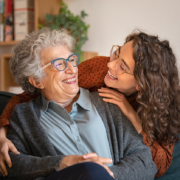




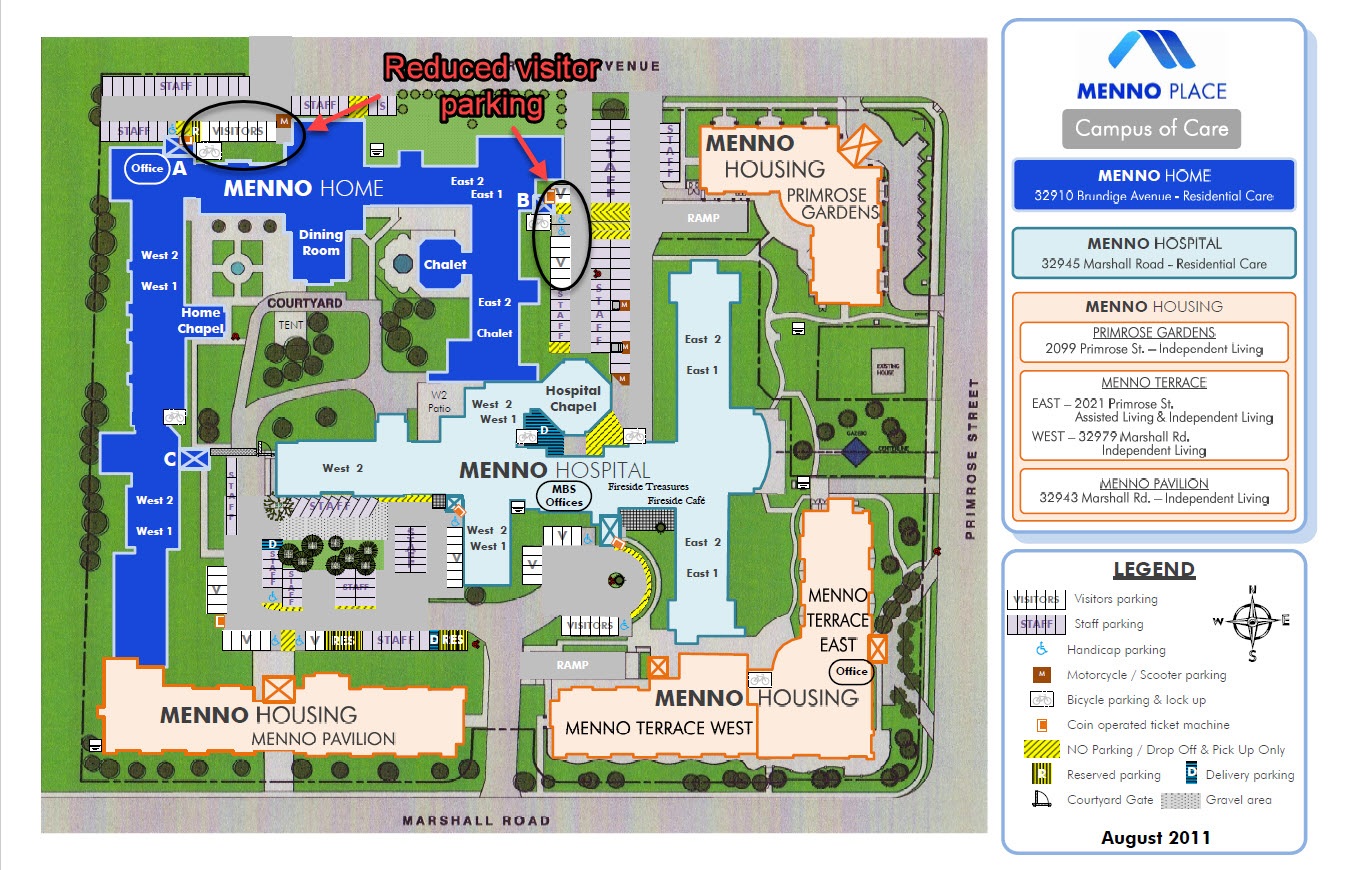
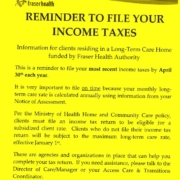
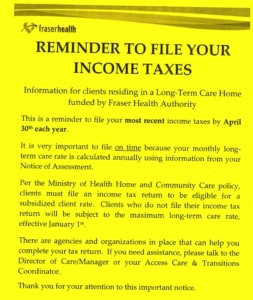
 We are pleased to provide income tax preparation services completed by a volunteer accountant, working in conjunction with the Community Volunteer Income Tax Program (CVITP). The CVITP partners with Canada Revenue Agency (CRA) to provide volunteers who prepare tax returns for those who have a modest income and a simple tax solution.
We are pleased to provide income tax preparation services completed by a volunteer accountant, working in conjunction with the Community Volunteer Income Tax Program (CVITP). The CVITP partners with Canada Revenue Agency (CRA) to provide volunteers who prepare tax returns for those who have a modest income and a simple tax solution.